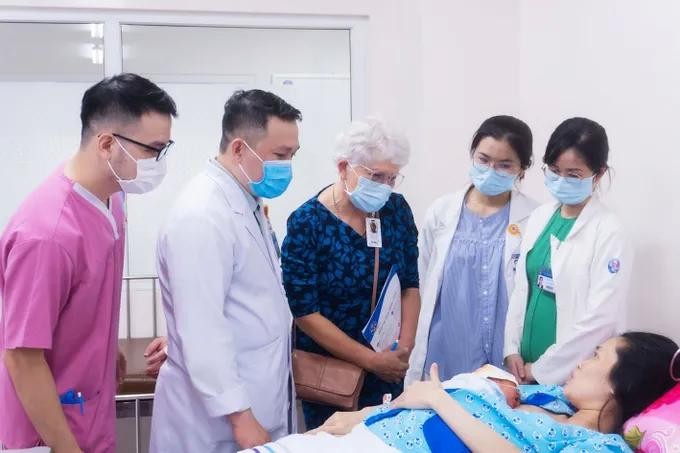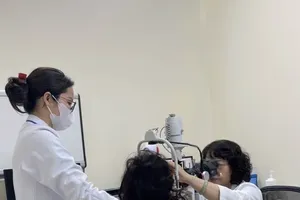
Vietnam has proactively engaged in global health partnerships, successfully and steadily narrowing the gap with world leaders in preventative medicine, treatment protocols, and overall healthcare service delivery. This active participation has yielded several key success stories at major medical facilities.
Cho Ray Hospital, for example, has forged a significant partnership with Japan to advance its capabilities in organ transplantation and sophisticated endoscopic techniques. Meanwhile, Bach Mai Hospital works closely with experts from France and Germany to enhance specialized medical training. The Pasteur Institute in Ho Chi Minh City collaborates with institutions in the United States and South Korea on cutting-edge vaccine research and preparedness for emerging infectious diseases.
These mean that Vietnamese citizens are increasingly achieving ability to access world-class healthcare within their own country. More significantly, they highlight the nation's rapidly growing capacity for international medical integration, positioning Vietnam as a capable partner in the global health arena.
Ho Chi Minh City is a model of international healthcare cooperation. In Ho Chi Minh City, international healthcare collaboration has become a defining feature of the city’s medical landscape, reflected through numerous partnership agreements between local hospitals and leading global medical institutions.
For example, Children’s Hospital 1 has signed a cooperation agreement with Alder Hey Children’s Hospital in Liverpool, UK, to promote professional training exchanges and develop advanced pediatric techniques. Tu Du Hospital collaborates with the European International School of Perinatal, Neonatal and Reproductive Medicine (PREIS, Italy) to establish and develop a European-standard Fetal Intervention Center. It also partners with the European Resuscitation Council to launch the first Neonatal Resuscitation Training Center in Southern Vietnam.
Similarly, the Blood Transfusion and Hematology Hospital, Oncology Hospital, and Binh Dan Hospital have all identified international cooperation as a strategic mission, enabling them to continuously update and apply cutting-edge medical advancements for patient care.
Since the early 1990s, the Hospital for Tropical Diseases in Ho Chi Minh City has been a pioneer in expanding international partnerships. Its most notable collaboration is with the University of Oxford (UK) through the Oxford University Clinical Research Unit (OUCRU)—one of Asia’s leading infectious disease research centers. This strategic partnership has transformed the hospital into a research hub for major international projects on infectious diseases such as dengue fever, Japanese encephalitis, tuberculosis, hepatitis, hand-foot-and-mouth disease, HIV/AIDS, and Covid-19.
Through OUCRU, hundreds of scientific papers by Vietnamese physicians have been published in prestigious international medical journals, affirming Vietnam’s research capacity and opening new pathways for diagnosis, treatment, and disease prevention.
Vietnam expands global healthcare partnerships with Russia and beyond
Recently, the VNVC Vaccine and Biological Products Factory signed a comprehensive technology transfer agreement with Medsintez Pharmaceutical Company (Russian Federation) to produce next-generation biological drugs for the treatment of severe acute and chronic diseases. This partnership marks a significant step forward in Vietnam’s effort to master advanced biopharmaceutical manufacturing technologies.
In addition, Tam Anh Hospital has entered into an agreement with Russia’s National Cancer Research Center to cooperate on new technologies for cancer diagnosis and treatment. Meanwhile, many private hospitals including Nam Sai Gon, Hoan My, Gia An 115, and City International Hospital are strengthening collaborations with leading global hospitals and health organizations to enhance service quality and accelerate the adoption of international medical standards.
Director of the Ho Chi Minh City Department of Health Associate Professor Tang Chi Thuong emphasized that partnership agreements with foreign hospitals carry significant value both professionally and strategically. Such collaborations enable Vietnamese hospitals to access modern technologies, advanced management systems, and innovative treatment techniques, thereby improving healthcare quality and treatment efficiency.
He noted that through exchange programs, training initiatives, and technology transfer, medical professionals in Ho Chi Minh City gain opportunities to learn specialized knowledge and hands-on experience from international experts. This not only enhances their clinical expertise and technical skills but also strengthens the city’s overall medical workforce. International cooperation, he added, also creates pathways for Vietnamese doctors to participate in joint research projects, apply cutting-edge medical advancements, and contribute to the development of new treatment methods and pharmaceuticals.
Deputy Minister of Health Do Xuan Tuyen emphasized the crucial role of international cooperation, highlighting that in recent years, the quality of medical examination and treatment in Vietnam has made remarkable progress. The expertise of Vietnamese doctors, he said, now rivals that of their counterparts in other countries in the region and beyond. International collaboration has been a key factor in helping Vietnam improve healthcare services, quickly adopt medical innovations, and strengthen its ability to respond to public health challenges.
Currently, Vietnam has proactively expanded its cooperation network with about 80 countries and territories; maintained relations with more than 20 international organizations and over 200 foreign non-governmental organizations, international financial institutions, global funds, universities, research institutes, and major scientific centers around the world.
Vietnam's engagement in global health extends well beyond bilateral cooperation. The nation’s health sector has become a proactive participant in numerous multilateral cooperation mechanisms and major global health forums.
This expanded involvement includes active participation in initiatives spearheaded by key international bodies:
- World Health Organization (WHO)
- UNICEF (United Nations Children's Fund)
- UNFPA (United Nations Population Fund)
- UNAIDS (Joint United Nations Program on HIV/AIDS)
























